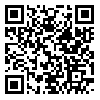مجله رویش روانشناسی از دادن گواهیهای کاغذی معذور است. لطفا تقاضا نکنید. همه گواهی ها در صفحه شخصی کاربران موجود است.
year 14, Issue 3 (spring 2025 2025)
Rooyesh 2025, 14(3): 53-64 |
Back to browse issues page
Download citation:
BibTeX | RIS | EndNote | Medlars | ProCite | Reference Manager | RefWorks
Send citation to:



BibTeX | RIS | EndNote | Medlars | ProCite | Reference Manager | RefWorks
Send citation to:
Yaghoobi A, Afzali A, Behrouz F, Rahmani F. (2025). Designing a conceptual model of the formation of Phubbing in children by analyzing the lived experiences of mothers: A Grounded Theory Study. Rooyesh. 14(3), 53-64.
URL: http://frooyesh.ir/article-1-5833-en.html
URL: http://frooyesh.ir/article-1-5833-en.html
1- Professor, Department Of Psychology, Faculty Of Economics and Social Sciences, BU-Ali Sina University, Hamadan, Iran. , yaghoobi@basu.ac.ir
2- Associate Professor, Department Of Psychology, Faculty Of Economics and Social Sciences, BU-Ali Sina University, Hamadan, Iran.
3- Ph.D Student in Educational Psychology, Department Of Psychology, Faculty Of Economics and Social Sciences, BU-Ali Sina University, Hamadan, Iran.
4- M. A. of Educational Psychology, Ferdowsi University, Mashhad, Iran.
2- Associate Professor, Department Of Psychology, Faculty Of Economics and Social Sciences, BU-Ali Sina University, Hamadan, Iran.
3- Ph.D Student in Educational Psychology, Department Of Psychology, Faculty Of Economics and Social Sciences, BU-Ali Sina University, Hamadan, Iran.
4- M. A. of Educational Psychology, Ferdowsi University, Mashhad, Iran.
Abstract: (864 Views)
The present study was conducted to design a conceptual model of the formation of phubbing in preschool children by analyzing the lived experiences of their mothers using a data-based qualitative method. The research community was all parents of the Autism Association of Tehran. The sample of the study included 13 mothers who had a phubbing child and were selected by theoretical sampling. The research tool was a semi-structured interview that was conducted in the form of a telephone and virtual conversation between September and October of 1403 with a prior appointment. Each interview session is between 30 and 40 minutes, and in some cases, parents did not have time or desire to continue the interview in one session, so the interview was postponed to the second session. The analysis method of this research was open, axial, and selective coding. And the design of the model was examined using 10 selective categories resulting from coding. The findings showed: Phobbing hss symptoms similar to autism disorder, but it is different from it, and these two disorders are important in the identification and treatment process The children of the mothers participating in this study, according to a review of available documents, including: counseling records and specialists from autism centers, did not have autism. And with the researchers' follow-up, according to the mothers' reports and diagnostic interviews with specialists, the recovery of these children was confirmed with strategies for disconnecting from digital devices, establishing mother-child interaction, and a healthy media regime were approved.
Type of Article: Qualitative article |
Subject:
Educational Psychology
Received: 2024/11/28 | Accepted: 2025/03/19 | ePublished: 2025/05/31
Received: 2024/11/28 | Accepted: 2025/03/19 | ePublished: 2025/05/31
Send email to the article author
| Rights and permissions | |
 |
This work is licensed under a Creative Commons Attribution-NonCommercial 4.0 International License. |





